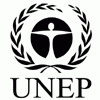The United Nations Environment Programme (UNEP) is the leading global environmental authority that sets the global environmental agenda, promotes the coherent implementation of the environmental dimension of sustainable development within the United Nations system and serves as an authoritative advocate for the global environment.
UNEP work encompasses:
- Assessing global, regional and national environmental conditions and trends
- Developing international and national environmental instruments
- Strengthening institutions for the wise management of the environment
Mission
"To provide leadership and encourage partnership in caring for the environment by inspiring, informing, and enabling nations and peoples to improve their quality of life without compromising that of future generations."
Members:
Resources
Displaying 26 - 30 of 106Environmental sustainability for human well-being in the Post-2015 development agenda
A new post-2015 development agenda demands a new vision and a responsive framework with
Assessing global land use: Balancing consumption with sustainable supply
This report explores how the management of land-based biomass production and consumption can be developed towards a higher degree of sustainability across different scales: from the sustainable management of soils on the field to the sustainable management of global land use as a whole. Under business as usual conditions, the growing demand for food and non-food biomass could lead to a gross expansion of cropland in the range of 320 to 850 million hectares by 2050.
Financing Strategies for Integrated Landscape Investment: Synthesis Report,” in Financing Strategies for Integrated Landscape Investment
Policymakers and land managers around the world are struggling to use our finite land and resource base to increase agricultural production, ensure resilient ecosystems and improve livelihoods. Many are turning to integrated landscape management (ILM) as a framework for inter-sectoral planning and investments to reduce potential trade-offs and realize inherent synergies.
Carbon Pools And Multiple Benefits Of Mangroves In Central Africa: Assessment for REDD+
The report confirms that mangroves are among the most carbon-rich ecosystems in the world and seeks to provide the basis for their sustainable management, conservation and restoration. It highlights the high ecological and economic values of mangroves, and the threats that exist across the region. (Executive summary in Spanish and French)
Assessing global land use: Balancing consumption with sustainable supply
This report discusses the need and options to balance consumption with sustainable production, as changing trends in both the production and consumption of land-based products put increased pressure on land resources across the globe. It focuses on land-based products (food, fuels and fibre) and describes methods which enable countries to determine whether their consumption levels exceed sustainable supply capacities. Strategies and measures are outlined with the aim of allowing the adjustment of policy framework to balance consumption with these capacities.




